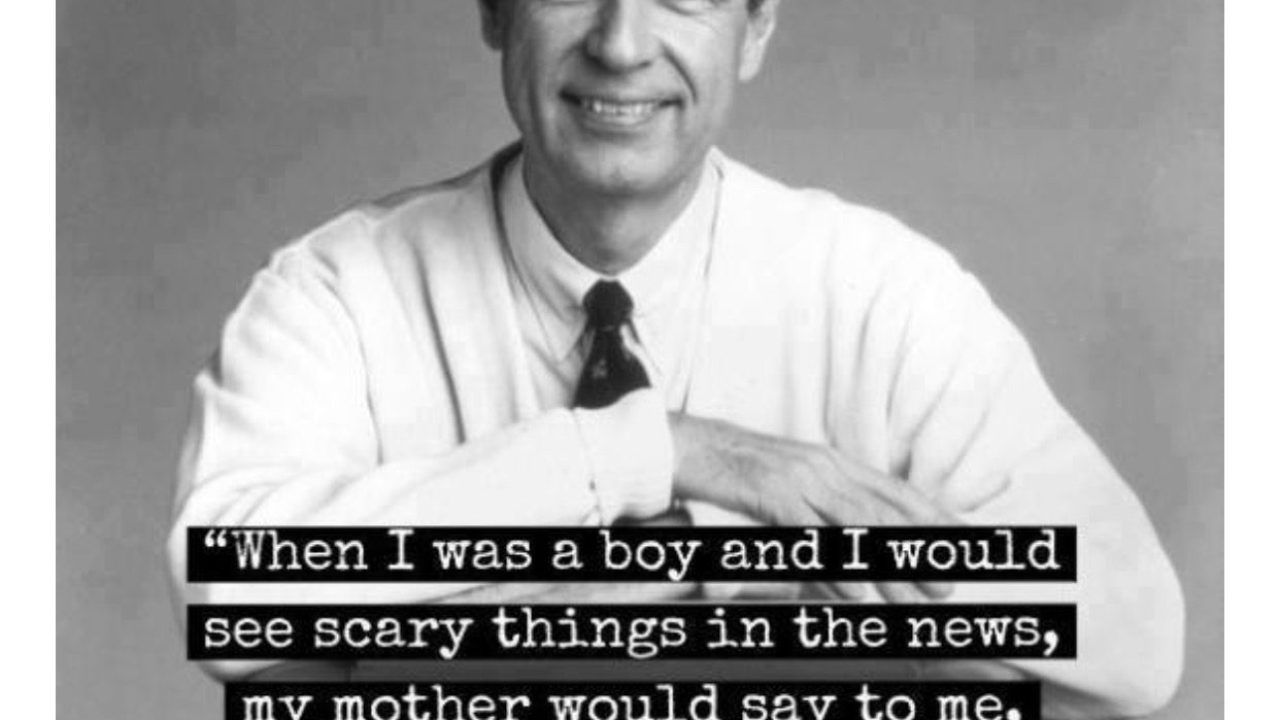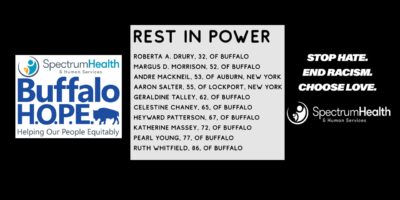Many parents like myself in our local Buffalo community in the last two days have found themselves struggling with how to have a discussion with our kids about the events that took place last Saturday at the Tops supermarket on Jefferson Ave.
One way to do this is to start having real, raw, authentic conversations with your children, even if they are very young.
We are additionally faced with needing to talk to our children about a senseless act of terrorism that was so deeply rooted in hate. There is not an easy, perfect, or standard way to accomplish this. If your child is at risk of hearing about the events at school, on the bus, on the news, or elsewhere, it’s important that you prepare to have an age-appropriate conversation with them.
There is no one-size-fits-all solution to this conversation. The age and temperament of your child should determine your approach. The younger or more temperamental the child, the simpler your explanation should be, even if it’s just a sentence. Older kids may ask more questions or have feelings of uneasiness. In these situations, it is a good idea to not interrupt them and let them complete their thoughts before you respond. There is not a need to force your child to completely understand or engage in a conversation: clarity and facts will empower them and create a sense of security.
Some ways you can buffer this conversation is to mention heroes or the positives; in our case law enforcement who responded, and the retired Buffalo Police Office who was the security guard, Aaron Salter, Jr., who risked and lost his life confronting the aggressor. You may also want to make sure your child knows the dangerous man is now in police custody and not an imminent threat.
Do your best to prevent your children from seeing photos of the event, or hearing adults have in depth, detailed conversations about it. Be watchful over what is playing on your television or computer or if your children can overhear you discussing it with another adult.
Additionally, you need to take care of yourself. Process your own feelings and emotions and be a good example for how to navigate tragic events like this.
Most importantly, remember that help is available. Spectrum Health is proud to be part of the drop in center at the Johnnie B. Wiley Pavilion, 1100 Jefferson Ave. in Buffalo. It’s organized by the Erie County Department of Mental Health and staffed by counselors from local agencies and counselors are there to listen and help, 9am to 9am, daily until May 27. This service is free; there is no paper work or forms to fill out. Just come in and talk or listen…whatever you need.
If you need more, Spectrum Health’s 24/7 crisis line is always open, 716 710 5172. And if your child is in crisis (or youth to age 17), Spectrum Health C.A.R.E.S. is also available 24/7, 716 882 HELP (4357). In other words, you are never alone.
Shannon Schwarberg
Sr. Program Manager of Special Project Development



